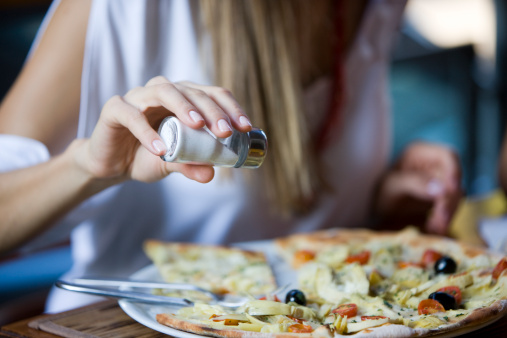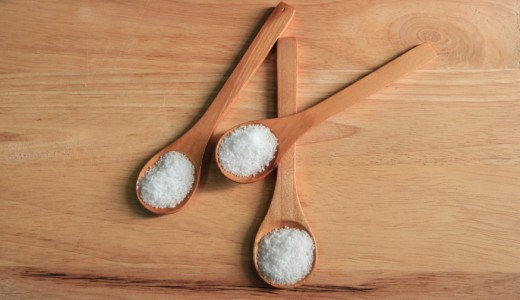According to a recent study by Queen Mary University of London, it would be enough to reduce the daily intake of salt by even just one gram to reduce cardiovascular risks. The research was carried out in China, where the daily per capita consumption of salt is the highest in the world and reaches 11 grams. The results were presented last August, on the occasion of the congress ofEuropean Society of Cardiology (Esc). Europe also boasts a culinary tradition in which salt is an essential ingredient. Our continent is also one of the areas of the world where cardiovascular diseases are the leading cause of death and excess sodium in the diet is a risk factor that experts have been warning about for some time.
The situation it is also worrying in Italy. “In our country – explains Giuliano Tocci, cardiologist at the Hypertension Center of the Sant’Andrea University Hospital in Rome and professor of Cardiology at the Department of Molecular Clinical Medicine, La Sapienza University – it is estimated that the average daily consumption salt is even double the amount recommended by the guidelines for the prevention of cardiovascular risk. On average we take from 7.2 grams (for women) to 9.5 grams (for men), compared to the recommended 5 grams (equal to about a teaspoon) “.

Useful for the correct performance of many biological functions (from the transmission of nerve impulses responsible for muscle contraction, to the regulation of electrolytes, blood pressure and the passage of fluids and nutrients through cell membranes), sodium is a metal present in large quantities of foods, especially in processed ones. The organism, however, only needs it in small quantities, much lower than the doses currently taken in developed societies, where over the years a growing consumption of industrially processed, handcrafted, preserved or pre-cooked foods has established itself. “The result of this excess – continues the expert – is a higher incidence of hypertension, atherosclerosis, heart attack and heart failure”.
The results English research reveals, however, that even a small reduction in the daily intake of salt would be enough to obtain the first benefits on cardiovascular health. In fact, scholars have shown that every gram of salt less corresponds to an average reduction in systolic blood pressure of about 1.2 mmHg. In China, where the study took place, maintaining the reduction of one gram per day until 2030 would avoid around 9 million heart attacks and strokes and 4 million related deaths. Continuing until 2040 would increase the number of averted diagnoses to 13-17 million and averted deaths to 8 million. Even in Italy, where 150,000 heart attacks occur a year and 600,000 diagnoses of heart failure, to which are added another 240,000 latent cases, a reduction in salt consumption would certainly bring important benefits. “In our country – continues Tocci – cardiovascular diseases are today the leading cause of hospitalization and the main cause of death, with 240,000 deaths every year. The latter, at least in 50% of cases, concern the complications, after 4-5 years, of events such as heart attacks and strokes ”.

At the light of the results of the new study, the message on which the experts insist is clear: to be able to moderate your daily sodium intake you don’t need to upset your eating habits, but just follow a few simple recommendations from the specialists. The first thing is to avoid adding salt to dishes, replacing it with spices and aromatic herbs, then it is necessary to reduce the consumption of preserved foods by favoring fresh ones and check the labels of packaged products to check the ‘hidden’ salt content. If the World Health Organization’s goal of lowering salt consumption by 3.2 grams per day is met by 2025, around 14 million stroke and heart disease cases worldwide could be prevented.
give it in particular they should be careful with their daily sodium intake, as they are more prone to the disabling or even lethal effects of hypertension. According to Tocci: “The reasons for this female susceptibility are stress, lifestyle, hormonal dysfunctions linked to menopause, but also to the abuse of contraceptives, smoking or other conditions independent of the physiological aging of the organism”. Also in this case, a low-sodium diet, together with the correction of bad lifestyle habits, is essential to keep blood pressure values below 140/90 mmHg (or, better still, within the ideal range of 120/80 mmHg. ) and avoid the even more dangerous sudden hypertensive ‘spikes’, which can damage or even break blood vessels.
© Reserved reproduction; Photo: iStock, Fotolia
For 12 years, Ilfattoalimentare has been talking about what happens in the world of supermarkets, what are the pitfalls in labels, publishes sentences on misleading advertisements as well as reporting the work of lobbies that operate against the interests of consumers.
Ours is an independent site without a publisher, without conflicts of interest and without public contributions. This is possible thanks to the banners of the companies and the thousands of readers who read us every day and allow us to reach 20 million views a year, without stuffing the articles with invasive advertising. Ilfattoalimentare gives free access to all articles.
Support us, just a minute click here. If you want you can also do it with a monthly payment.
Roberto La Pira
